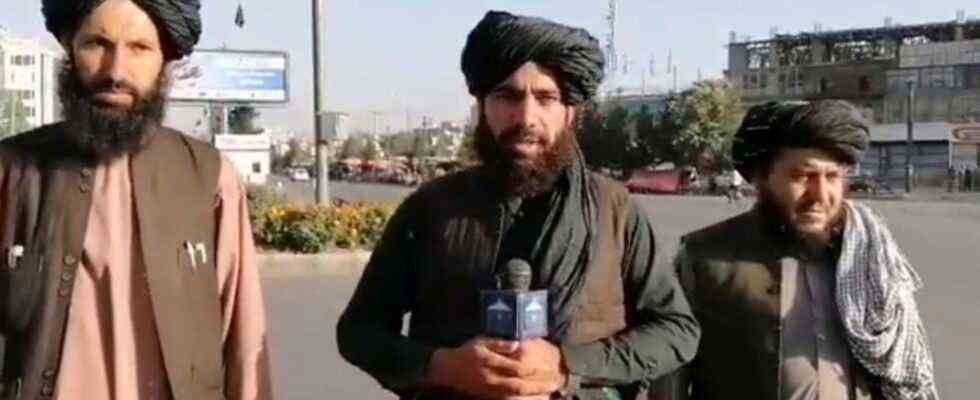Status: 08/18/2021 05:07
Facebook classifies the Taliban as a terrorist organization and has therefore banned the Islamists on its platform. Twitter is much more relaxed in dealing with it. The Taliban distribute important news there.
When the USA invaded Afghanistan in 2001, there was no Internet in the country, and only very few had a cell phone, Emerson Brooking of the Washington think tank Atlantic Council tells business broadcaster Bloomberg. “Today 40 percent of Afghans have internet access, 90 percent have a mobile phone.” The Taliban have long understood how to use the full range of social media. They have accounts on all major platforms.
“They have been with WhatsApp and Telegram since 2015. In 2017 they started publishing propaganda videos modeled on the IS terrorist organization. And for three years they have been spreading fake news – similar to what we are used to from Iran or Russia.”
Different ways of dealing with the Taliban between the platforms
If you ask the big social media companies in Silicon Valley whether and how they proceed against Taliban accounts, the answer is very different. The Google subsidiary YouTube is extremely closed. The video platform indicates that the US government classifies the Taliban as a terrorist organization. Therefore, Taliban accounts will be deleted. One does not want to say more.
Twitter is different. The short message service lets the Taliban spokesman, Suhail Shaheen, with more than 350,000 followers do it – as long as he does not call for violence, they emphasize in San Francisco.
Taliban accounts are prohibited on Facebook – both on its own platform and on subsidiary services such as Instagram or Whatsapp, according to Adam Mosserie, the head of the Instagram photo platform. “We do not allow the Taliban to be present with us – neither celebrations, advertising content or representation. We proactively delete all content that we consider dangerous, even if it concerns the Taliban in general.”
Difficult to locate Taliban accounts
Facebook has now deleted a group on WhatsApp that the Islamists had set up for the capital Kabul so that the population can use it to report looting or acts of violence.
In principle, however, it is very difficult for the chat service to locate Taliban accounts at all. WhatsApp messages are end-to-end encrypted. The app is dependent on the analysis of photos, profile photos and the self-description of possible groups.
Afghans must now delete online presence
In retrospect, says political scientist Brooking, Facebook, Twitter and YouTube even helped the radical Islamists on their way up. “They have given them legitimacy. The Taliban were able to celebrate their military progress there. Social media have allowed them not only to act as a shadow government, but also to present themselves as the legitimate government of Afghanistan. And that has been for some time.”
For many people in Afghanistan, according to Brooking, it is now important to be able to delete their online presence as quickly as possible, for example their resume on LinkedIn. Because that is the first thing the Islamists would check during an identity check:
They want to check whether they have supported the US or the West in the past. Even a semester abroad five or ten years ago, or when you are friends with people in the USA or Europe, is dangerous.
This is exactly what is easiest to find out online. It is highly questionable whether these digital traces can be blurred so quickly in a search engine like Google.
Taliban and social media
Marcus Schuler, ARD San Francisco, August 18, 2021 5:35 am

